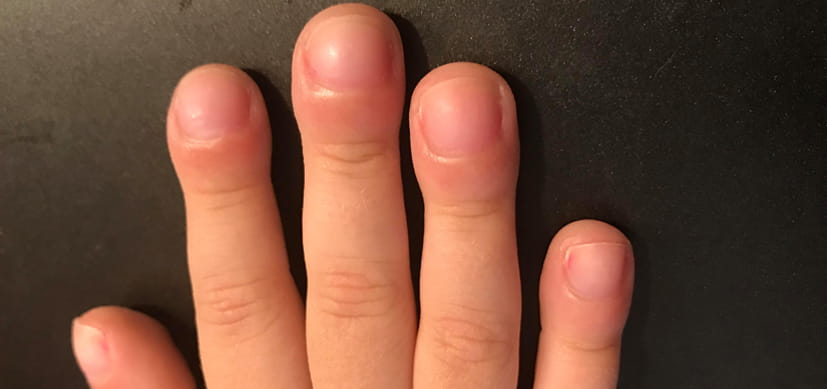Grom / Thornton Lab
Grom / Thornton Research Lab
The Alexei Grom, MD / Sherry Thornton, PhD, Lab
Our lab’s main area of interest is juvenile arthritis. Specifically, we study the pathogenesis of rheumatic conditions such as juvenile idiopathic arthritis (JIA) and macrophage activation syndrome (MAS), a complication of JIA. Our work includes a strong translational component; along with studying the mechanisms behind these conditions, we are researching potential biomarker and imaging techniques that could accelerate the diagnosis and treatment process.
Alexei Grom’s research is exploring the pathways responsible for the increased incidence of macrophage activation syndrome (MAS) in systemic JIA. MAS, a potentially fatal complication of JIA, is an inflammatory reaction driven by excessive activation and expansion of T cells (mainly CD8+), and hemophagocytic macrophages (see figure). Treatment of MAS is not always successful, due in part to the difficulty of distinguishing it from sepsis. Not surprisingly, MAS remains one of the major causes of morbidity and mortality in pediatric rheumatology.
There is a strong need for biomarkers that would help identify systemic JIA patients at risk for the development of MAS, as well as reliable laboratory tests that would assist with the early diagnosis of MAS. This would allow for timely treatment modifications to prevent progression of MAS to the life-threatening stage. Our team hopes that by better understanding MAS’s pathophysiology, we can overcome a major hurdle in the development of an effective biomarker.
Sherry Thornton’s research focuses on understanding the pathogenesis of arthritis using mouse models. We are particularly interested in finding and functionally evaluating targets for the treatment of rheumatic disease, with a particular interest in the role of hemostatic factors and angiogenesis. Our research has shown that fibrinogen, plasminogen and thrombin play a functional role in inflammatory arthritis; now, we are beginning to understand how these factors interact in the pathogenesis of disease.
Another of our major interests is the use of reagents to label inflammatory cells for visualization as a potential clinical tool, and for evaluation of cell types during the course of disease in animal models. Along with Dr. Grom, our laboratory has played an important role in analyzing cell types in samples from JIA and control populations and identifying the gene expression profiles from these samples.
Contact the Grom / Thornton Lab
Division of Rheumatology
Location R Room 5543
Phone: 513-636-7663
Basic Research
Translational Research
Meet our Team
Science Blog
Clinical Trial Success Caps Long Journey for HLH Treatment
Alexei A. Grom, MD, Michael B. Jordan, MD3/22/2021
Aggressive Screening Needed to Detect sJIA Lung Complication
Alexei A. Grom, MD, Grant Schulert, MD, PhD10/29/2019





